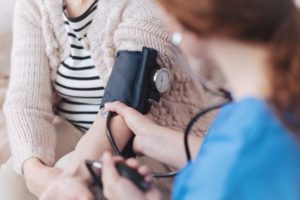All the Medical Tests You Should Be Getting If You’re Over 50
When you’re over 50, there are a few more health concerns than there were at 20. It’s important to stay on top of your health as you age, since your body isn’t what it once was — and managing your health through diet and exercise becomes more important than ever. Here are 15 tests you should have once you turn 50 to keep yourself in top shape.
1. Blood pressure
Your blood pressure reveals a lot about your heart health. The blood pressure is the force of blood against the artery walls. As you age, your blood pressure is more likely to rise, and high blood pressure can mean heart disease down the road. You should actually start having your blood pressure checked once per year after age 40. This way, any potential problems can be nipped in the bud before they advance into something more serious. 1 in 3 Americans has high blood pressure, so don’t assume everything is fine — high blood pressure often yields no symptoms.
2. Colorectal cancer screening
Most colorectal cancer screenings should begin at age 50, and you should be checked at least once every five years. African Americans should start screening at age 45, according to the Colorectal Cancer Alliance. And if you have a history of the cancer or any symptoms, make sure to talk to your doctor, even if you are not yet 50. As your body ages, colon cancer becomes more common, so tests are imperative. Men have a 1 in 21 chance of getting the disease; for women, it’s 1 in 23.
3. EKG
An electrocardiogram, or EKG (sometimes called ECG), is a way for your doctor to check your heart activity. The EKG is used to check for signs of heart disease. Small electrode patches record your heart’s electrical activity to see if there are any signs of rhythm problems with the heart. According to WebMD, the test allows a doctor to determine how normal your heart rhythm is, see if you have poor blood flow to your heart muscle, diagnose a heart attack, and notice anything abnormal, such as a thick heart muscle. Those over 50 are at a greater risk of heart disease, so it’s important to have an EKG once per year.








